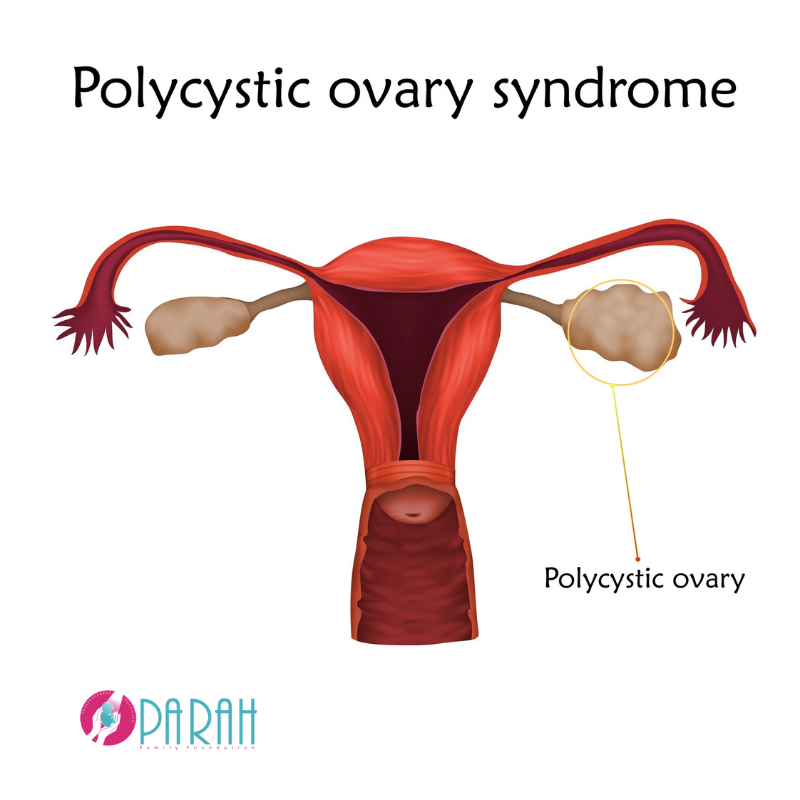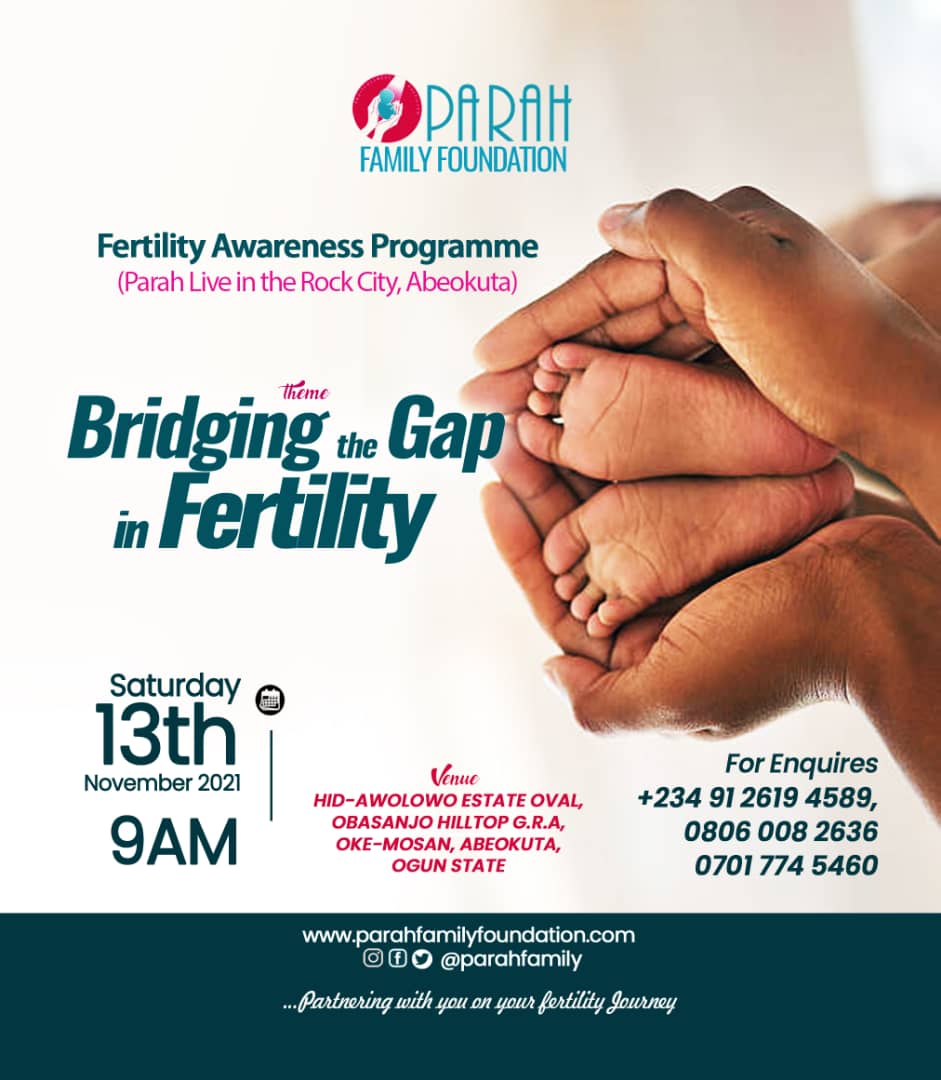How PCOS Affects Fertility
Polycystic ovarian syndrome (PCOS) expresses itself as a large number of small immature cysts on the ovaries that cause a disturbance in the production of hormones and an increase in the secretion of the male sex hormone. This means that many women with the condition do not ovulate regularly, and the syndrome may lead to infertility.
Such women-run increased risk of becoming obese, developing type 2 diabetes, or heart disease.
Polycystic ovarian syndrome is a health problem that affects 1 in 10 women of childbearing age. Such women have a hormonal imbalance and metabolism problems that may affect their overall health and appearance. It is also a common and treatable cause of infertility.
I did say PCOS is a common health problem caused by an imbalance of reproductive hormones. The hormonal imbalance creates problems in the ovaries.
If you are diagnosed with PCOS, your egg may not develop as it should or it may not be released during ovulation as it should be.
The condition can cause you to have missed or irregular menstrual periods that can lead to infertility. It affects you the most during the years that you can have children.
Many women often find out they have PCOS in their 20s and 30s when they have problems getting pregnant but PCOS can happen at any age after puberty. Your risk may be higher if you are obese or if you have a mother, sister, or aunt with the condition.
The symptoms of PCOS are not as strange as expected. You may have an irregular menstrual cycle or may miss your periods or have fewer periods than normal.
Your periods may actually come every 21 days or more often. You may even stop having menstrual periods altogether.
There are other telltale symptoms. Things like too much hair on your face, chin, or other parts of the body where men usually have hair are give-aways. This is called “hirsutism.” Hirsutism affects up to 70 percent of women with PCOS.
Others are acne on the face, chest, and upper back; thinning hair or hair loss on the scalp; male-pattern baldness; weight gain or difficulty losing weight.
You could develop darkening of the skin, particularly along neck creases, in the groin, and underneath your breasts.
The exact cause of PCOS is not known, but several factors, including genetics, play a role:
If you have high levels of androgens, sometimes called “male hormones,” it could be a problem, although all women make small amounts of androgens. It is known that women with PCOS have more androgens than normal.
The reason is that higher than normal androgen levels can prevent the ovaries from releasing an egg (ovulation) during each menstrual cycle, and can cause extra hair growth and acne – two cardinal signs of PCOS.
High levels of insulin is another factor. Insulin is a hormone that controls how the sugar in the food you eat is changed into energy. If you have PCOS you may have insulin resistance, which is when the body’s cells do not respond normally to insulin.
As a result, your insulin blood levels become higher than normal. It’s worse if you’re overweight or obese, have unhealthy eating habits, do not get enough physical activity, and have a family history of diabetes (type 2 diabetes).
However, having PCOS does not mean you can’t get pregnant. It is one of the most common, but treatable, causes of infertility in women. If you’re diagnosed, it may be that hormonal imbalance interferes with your ovulation and if you don’t ovulate, you can’t get pregnant.
As a remedy, you can seek ways to help you ovulate and to raise your chance of getting pregnant but note that PCOS could be linked to other health problems.
More than half of women with this disorder will have diabetes or prediabetes (glucose intolerance) before the age of 40. Such women are also at greater risk of having high blood pressure compared with women of the same age without PCOS.
Your symptoms may or may not go away at menopause but your menstrual cycles may become more regular as you get closer to menopause. However, the hormonal imbalance does not change with age, so you may continue to have symptoms.
There is no single test to diagnose PCOS. To help with diagnosis and rule out other causes of your symptoms, your medical history is necessary and a physical examination and different tests required.
Among the tests are blood tests to check your androgen hormone levels, sometimes called “male hormones.” Tests are also done to check for other hormones related to other common health problems that can be mistaken for PCOS, such as thyroid disease. Once other conditions are ruled out, you may be diagnosed if you have at least two of the cardinal symptoms.
Your treatment options for PCOS are varied but there is no cure, you can only manage the symptoms. You and your doctor should work on a treatment plan based on your symptoms, your plans for having children, and your risk of long-term health problems such as diabetes and heart disease.
You may need a combination of treatments and can take steps such as losing weight, eating healthy and regular physical activity to help relieve PCOS-related symptoms.
If you have overweight or obesity, losing weight through healthy eating and regular physical activity can help make your menstrual cycle more regular and improve your fertility
Losing weight may help to lower your blood glucose levels, improve the way your body uses insulin, and help your hormones reach normal levels. But losing weight alone may not help you conceive on your own. You may still need fertility drugs.
You can try facial hair removal creams, laser hair removal, or electrolysis to remove excess hair.
The types of medicines that treat PCOS and its symptoms include hormonal birth control, including the pill, patch, shot, vaginal ring, and hormone intrauterine device (IUD).
There are a number of effective fertility treatments available, from Clomid to gonadotropins to IVF.
You could be like most women that can conceive with a combination of lifestyle changes and fertility drugs. While some women will need IVF, most will get pregnant using lower-tech fertility treatments.
One of the main reasons you can’t readily conceive with PCOS is because you don’t ovulate, or don’t ovulate regularly. Eating a healthy diet is really important for you. The most important thing is to make sure your diet is rich in nutrient-rich foods and adequate protein and low on high sugar foods. Avoiding junk food and processed foods is your best bet.
Including more protein and green vegetables is a good idea.
Regular exercise helps with PCOS symptoms. A combination of regular brisk walking and eating a healthier diet improves menstrual cycle regularity by 50 percent.
Whether diet and exercise alone will help you conceive isn’t clear. After ruling out other causes of infertility in you and your partner, your doctor might prescribe medicine to help you ovulate.
In vitro fertilization (IVF) is an option if the medicine does not work. IVF involves using injectable fertility drugs to stimulate the ovaries so that they will provide a good number of mature eggs. The eggs are retrieved from the ovaries during a procedure known as an egg retrieval. Those eggs are then placed together with sperm into Petri dishes. If all goes well, the sperm will fertilize some of the eggs.
After the fertilized eggs have had between 3 to 5 days to divide and grow, one or two are transferred into the uterus. This is an embryo transfer. Two weeks later, your doctor will order a pregnancy test to see if the cycle was a success or not.
It’s highly unusual for women with PCOS to require an egg donor, unless there are additional fertility issues at hand, like advanced age. However, if you have had ovarian procedures like ovarian drilling or ovarian wedge resection to treat your PCOS, you may have lower ovarian reserves. In this case, an egg donor may be recommended. This is the reason why surgical treatment for PCOS is reserved for selected patients.
Compared to medicine alone, IVF has higher pregnancy rates and better control over your risk of having twins and triplets. Surgery is also an option, usually only if the other options do not work.
By Dr Abayomi Ajayi




